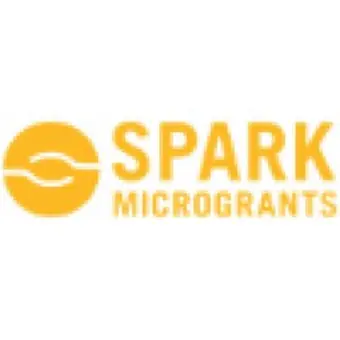ABOUT SPARK MICROGRANTS
Spark Microgrants works with communities across Africa to catalyze sustainable collective action and improve livelihoods through a community activation process accompanied by a microgrant. Since our founding in 2010, we have reached over 688,663 people in 816 communities across 7 African countries, including Burundi, the DR Congo, Ghana, Liberia, Malawi, Rwanda, and Uganda. We work through partnerships with local governments and non-governmental organizations (NGOs) in our community of practice. These partners receive training and funding from us to deliver our community-driven development (CDD) model.
Spark’s model is known as the facilitated collective action process (FCAP). It’s defined by a village-level grant, a series of regular and inclusive town-hall-style meetings held over 6-9 months, and training for both residents and local government officials, establishing a system for development coordination at the local level.
OUR WORK IN MALAWI, AND UPCOMING EVALUATION
Spark is currently commissioning a rigorous external evaluation of the FCAP in Malawi. The evaluation will be done with a randomized controlled trial (RCT) design. The three goals of this evaluation are 1) to evaluate the FCAP model’s impact, and understand the relative importance of community-led facilitation and cash grant in driving results; 2) to take on a “hard test” of the FCAP in comparison to a cash benchmark; and 3) to generate rigorous evidence which we can share with funders and policymakers in order to support the expansion of programming.
The evaluation is being led by a team of principal investigators (PIs), including Shilpa Aggarwal (Indian School of Business), James Habyarimana (Georgetown University), and Jonathan Robinson (University of California at Santa Cruz). Planning for the evaluation is ongoing, and is captured in an evaluation design workplan that can be shared upon request. Fundraising for the evaluation is also ongoing.
Spark seeks a survey firm with strong experience in Malawi to carry out the data collection for the evaluation. The survey firm will be contracted directly by Spark.
EVALUATION DESIGN
While the evaluation design is still being finalized, the tentative design is as follows:
-
- Location: One or two (rural) Districts in Malawi
- Length of time: 3-5 years, with the potential for extension
- Sample size: TBD, but potentially up to 4000 households
- Study design: four-arm RCT
- Arm 1: FCAP only (i.e., community-level grant plus facilitation)
- Arm 2: FCAP + a household-level cash transfer, delivered after FCAP activities have ended
- Arm 3: Cash benchmark, with a one-time household transfer delivered at the same time as the transfers in arm 2
- Arm 4: Comparison group
- Unit of randomization: Group village (GV), with additional selection at the village level
- The overall unit of randomization will be the group village
- Within each GV, one village will be selected to participate in the study
- In arms 1-3, we will also select another village to survey as a spillover comparison group
- Number of survey rounds: at least 5 surveys over a 3 to 5-year period
- Baseline survey (month 0 before FCAP starts)
- Midline (month 12, halfway through two-year FCAP cycle)
- Endline 1 (month 24, immediately after FCAP ends and and cash transfers are delivered)
- Endline 2 (month 36, one year after the end of FCAP and cash transfers)
- High frequency surveys (2 HHs per village, at least quarterly throughout the study period)
- N.B. potential for long-term follow-up around month 60, funding permitting
- Type of surveys: Quantitative household survey with the entire sample, and qualitative focus groups with a subset of the sample
- Timeline: TBD, but the baseline will need to end either right before the rainy season (around November) or start just at the end of it (around March). A baseline in 2025 is the most likely way forward.
SURVEY FIRM SELECTION CRITERIA
Spark seeks to recruit a survey firm for this evaluation with the following characteristics:
- Experience
- At least 5 years of experience doing quantitative and qualitative data collection in Malawi
- Previous experience carrying out RCTs or quasi-experimental program evaluations
- Familiarity with academic survey research (not just market research)
- Data collection
- Previous experience with a comparable sample size (up to 4000 households)
- Use of computer-assisted interviewing (CAI) for digital data collection during household interviews
- Familiarity with best practices in survey translation from English to Chichewa and survey piloting
- Team
- Appropriate size and experience of team to manage a large evaluation
- Ability to recruit and train Chichewa-speaking surveyors
- Financial management
- Appropriate financial management expertise in-house
- Certificate of tax compliance for the most recent fiscal year in Malawi, or in whichever country the relevant regional office may be found
The budget for this evaluation is not yet finalized; Spark and PIs are still fundraising for it, and the survey firm’s input on both the budget and the fundraising process will be important. We are doing competitive procurement for this role, with an eye to reducing survey costs, although also with the understanding that high quality data collection cannot be done cheaply.
HOW TO APPLY
Please submit the following application materials by August 9, 2024.
- Cover letter detailing how your firm meets our qualifications
- Examples of 2-3 recent projects, plus contact information for references
- Financial proposal, based on the sample size and geographic information shared here
- Follow the Link to apply: https://sparkmicrogrants.bamboohr.com/careers/112
Applications will be reviewed by the PIs. We expect to be in touch about next steps by or before August 30, 2024.



